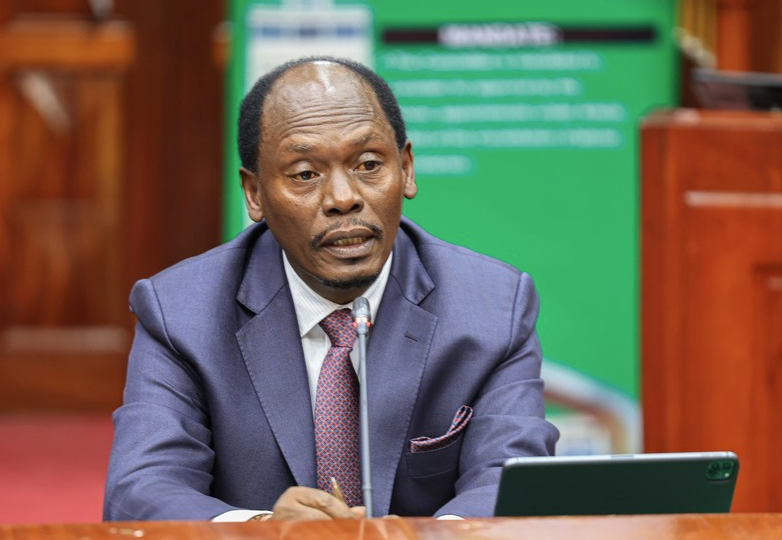A parliamentary committee session held on Tuesday laid bare years of mismanagement, unaccountability and systemic inefficiencies within the Ministry of Information, Communications and the Digital Economy currently headed by Cabinet William Kabogo, with issues that have spanned successive administrations and continue to hinder key national digital projects.
Revelations from the National Assembly Committee on Communication, Information and Innovation point to long-standing institutional problems rather than failures of a single administration.

The ministry, tasked with spearheading Kenya’s digital transformation, has faced a consistent pattern of poor planning, unexplained budgeting, and sluggish implementation of projects that were once touted as flagships of the country’s tech agenda.
During the session chaired by Dagoretti South MP John Kiarie, lawmakers expressed dismay at the pace and direction of programs like Studio Mashinani, which was envisioned to promote local music and content creation by setting up recording studios countrywide.
Yet, over a decade later, only ten studios have been built, with current plans reduced to just two more.
MPs questioned whether the project was ever a serious priority.
“You’ve done ten studios in ten years, and now only plan to do two? Is this a strategy or are you just riding on the digital transformation rhetoric?” posed MP Erastus Kivasu.
Budget inconsistencies were also a focal point.
While the Ministry claimed four new studios would cost Ksh 40 million, Kenya Broadcasting Corporation had earlier presented a Ksh 30 million estimate for similar work.
MPs flagged this as a sign of poor oversight or inflated projections.
“Where is the value for money in these requests?” asked MP Alfah Miruka, echoing the committee’s growing frustration with opaque budgeting.
Another red flag was the Ministry’s rising pending bills totalling Ksh 7.3 billion, a figure that includes Ksh 6.9 billion owed to the Postal Corporation of Kenya and Ksh 450 million to the IEBC.
But MPs said these numbers did not match those from the National Treasury, raising concerns about transparency and internal reporting.
“This data doesn’t tally with what Treasury has. So who is misleading the House?” Miruka questioned.
The situation has also jeopardized broader government agendas.
The BETA Digital Superhighway project, which aims to roll out 1,400 digital hubs across the country, has suffered from unclear mandates, poor coordination, and implementation delays.
MPs questioned why some of these hubs are being constructed through CDF without clear plans on who will equip or manage them.
“Why are we constructing hubs through CDF when there’s no clarity on who will supply equipment or run them?” asked MP Shakeel Shabbir.
ICT Authority CEO Stanley Kamanguya, who was present at the hearing, acknowledged delays, citing coordination problems with agencies like Kenya Power, but assured that solutions were underway.
Issues around cybersecurity, data privacy, and connectivity in public health institutions also surfaced, painting a picture of a ministry that has been reactive rather than proactive.
MPs revisited the Worldcoin saga, with MP Gideon Kimaiyo questioning whether Kenyans’ biometric data was truly deleted as claimed by the company.
The Office of the Data Protection Commissioner said Worldcoin had submitted a sworn affidavit confirming deletion in 2023, but verification remains incomplete.
A Ksh 2.8 billion funding gap in cybersecurity was another concern, especially in an age of rising digital threats. MPs criticized the government’s fragmented approach.
“Cybersecurity isn’t something to handle in bits. The government must stop working in silos,” said Chairperson Kiarie.
Concerns also extended to the Kenya Advanced Institute of Science and Technology (KAIST), where budget constraints have made it impossible to hire adequate faculty, potentially stalling accreditation.
“At this rate, KAIST can’t even hire one professor per department,” warned Prof. J. Khamasi.
In closing, Kiarie made it clear that the committee would not rubber-stamp any budget requests without tangible proof of planning, execution, and impact.
“We are not here to rubber-stamp figures. We want strategies that deliver value and progress,” he said.





































